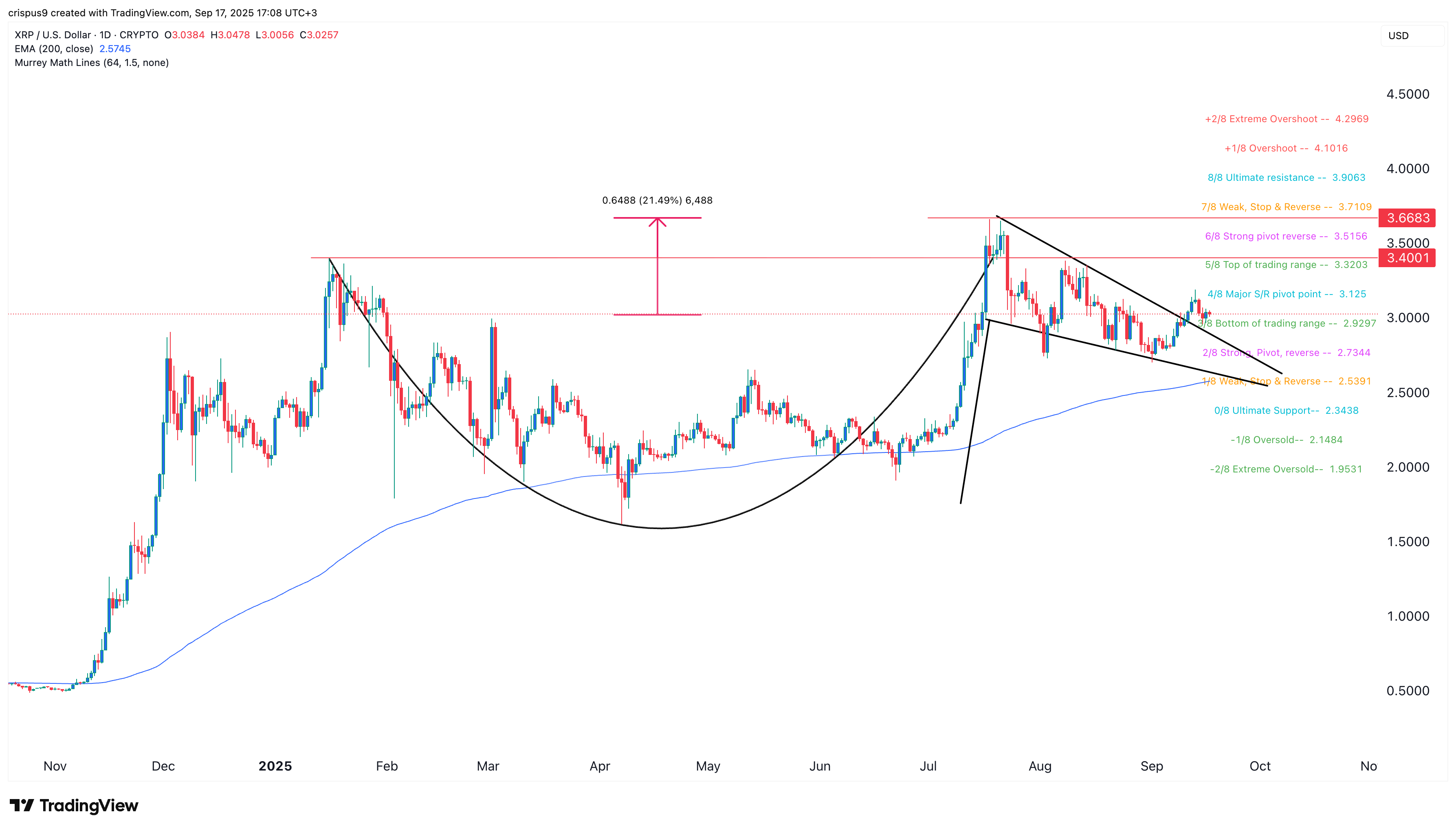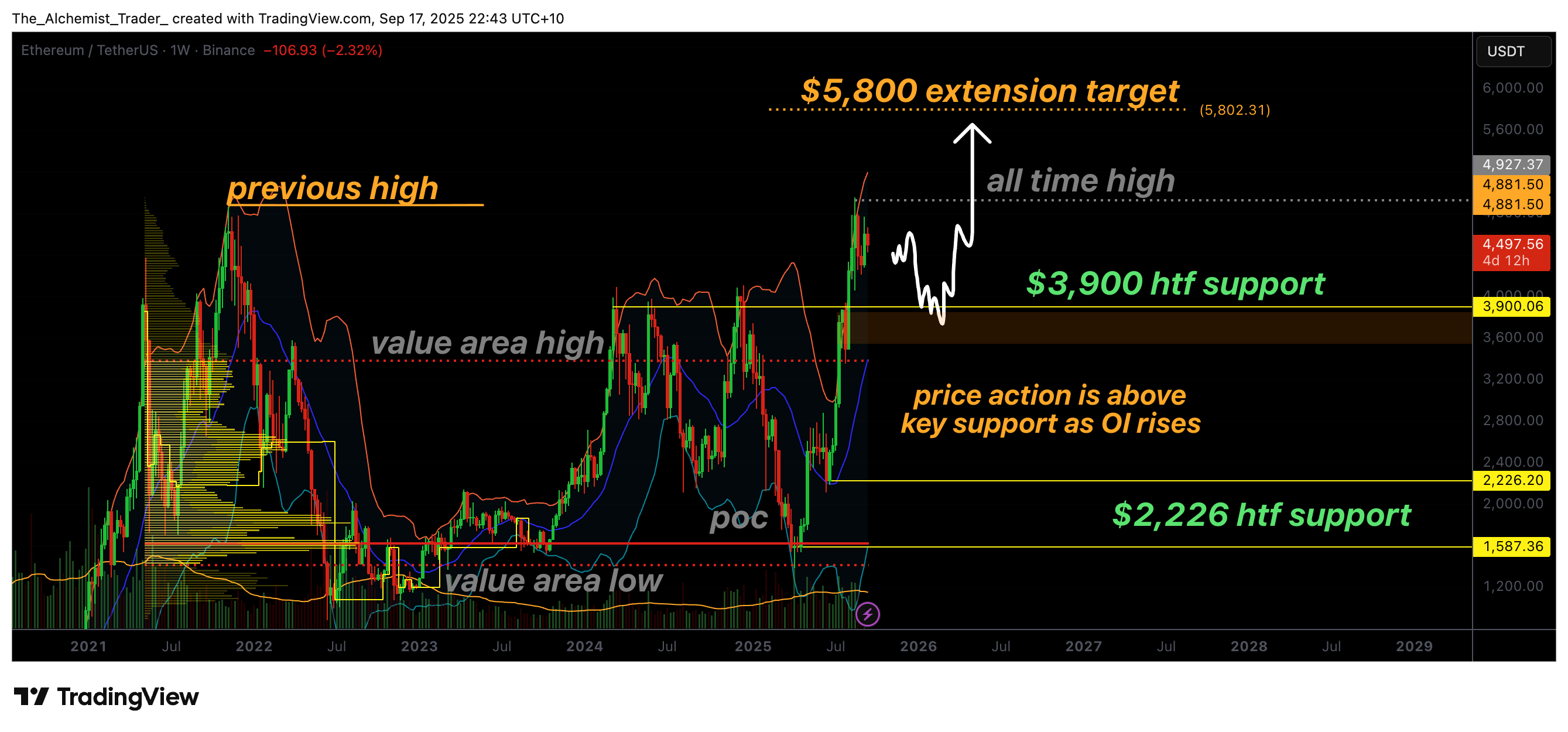Trump’s digital fortune at fault?

The collapse of a procedural Senate vote on stablecoin legislation (GENIUS Act) Thursday underscores the challenges of keeping cryptocurrency policy bipartisan. Once poised for smooth passage, the bill was derailed after last-minute Democratic objections and a lack of time to review final text — despite ongoing negotiations with Republican leadership.
The 48–49 vote, with two Republicans joining Democrats in opposition, highlights deepening divisions over process and trust. While both parties publicly support regulating digital assets, the vote raises questions about whether crypto can remain a nonpartisan issue in a polarized Senate.
In March, blockchain and digital asset attorney Marta Belcher confidently told crypto.news that support of crypto is nonpartisan:
“I think it’s a misconception that crypto has become partisan. Many people on both sides of the aisle support crypto. I don’t think crypto is a partisan issue, just like ‘the Internet’ isn’t a partisan issue. I don’t think, in 2025, either party can be ‘anti’ an entire technology if they’re thinking seriously about America’s future.”
If Belcher is right, then Democrats see support for crypto much differently than Republicans. If we look at what Democrats say about crypto regulations and topics they are concerned about in the sector, most of the time, we will find out they are not on the same page as Republicans.
Take, for example, President Trump’s memecoin, Official Trump (TRUMP). The profits he and his family members generate from their DeFi business are becoming a major sticking point in bipartisan negotiations over stablecoin legislation.
As Scott Galloway, a New York University Stern School of Business professor and co-host of the Raging Moderates podcast, recently told CNN, “The potential here for grift is just unprecedented.”
Democratic Senators felt their Republican colleagues didn’t address the issue. Sen. Elizabeth Warren even encouraged the bill to ban sitting presidents from profiting off crypto ventures—an effort directly targeting Trump, who offered exclusive interactions with its top holders.
Crypto in the Biden era
During President Joe Biden’s term, the cryptocurrency sector achieved several milestones. For example, Coinbase successfully became a NASDAQ-traded company. The outrightly crypto-skeptical Securities and Exchange Commission, then chaired by Gary Gensler, greenlighted Bitcoin exchange-traded funds.
That wasn’t enough for the industry’s top bulls. SEC official Hester Peirce said on May 8 that the approval process for Bitcoin ETFs was “mismanaged” and told Bloomberg News that the delays alienated innovators.
The crypto community also griped about alleged efforts to debank clients using digital assets, which they claimed was carried out by the FDIC and Department of Justice.
The situation, colloquially known as Operation Choke Point 2.0, was scrutinized for being an overreach on the part of the former administration by Trump, Republican Sen. Cynthia Lummis and the Fed Chair, Jerome Powell.
Gensler, a Democrat, filed numerous lawsuits against the cryptocurrency space during his term as SEC chair. The list includes Binance, Coinbase, Gemini, and Genesis, among others. One of the basic problems was the fact that Gensler insisted that most cryptocurrencies were nothing more than unregistered securities. This status was deemed prohibitive for innovation and current SEC officials prefer to view them as collectibles or commodities.
Under Trump, the SEC dropped many of the charges filed initially under Gensler.
Democrats seemingly decided to continue being cautious about crypto. Instead of fostering a free-breathing crypto experiment, they tried to play it slow to ensure no one was at risk.
However, this cautious approach can cost Democrats votes. A writer and CNN host, Van Jones, said that Democrats run people out of their party, noting that there are 50 million people owning crypto and going against them is “not smart.”
Democrats and crypto today
After tense negotiations that lasted for one week, the GENIUS ACT that should have regulated stablecoins in the U.S. failed in the Senate.
Most Republicans, confident in their victory, tried to convince their colleagues to accept the bill as soon as possible and ignored the Democrats’ request to give them another week to prepare.
People commenting on the news blamed Democrats for dedicating all their energy to blocking Republicans.
Jeff Park of Bitwise stressed that the bill wasn’t that radical and had high requirements for the stablecoin issuers.
Warren, according to Axios, argued that the GENIUS Act lacked basic guardrails against corruption. She and other Democratic leaders reportedly looked at the numbers. Per the New York Times, Trump’s family members could profit from the $2 billion worth of their stablecoins that would be used for a foreign transaction involving an Abu Dhabi investment fund.
And according to blockchain analytics firm Chainalysis, just 58 wallets have made over $10 million each from Trump’s memecoin so far. That’s $1.1 billion in profits. The majority of small holders (764,000 wallets) lost money.
Sen. Richard Blumenthal, a Democrat, initiated a probe of the growing Trump crypto business and requested records from Fight Fight Fight LLC, a company behind the Official Trump token, and World Liberty Finance, a crypto enterprise launched by Trump’s sons. In addition to various crypto ventures, WLF is a stablecoin issuer.
Blumenthal called Trump’s crypto business an unprecedented conflict of interest. Here’s what he wrote:
“President Trump’s financial entanglements to the $TRUMP coin, as well as the attempted use of the White House to host competitions to prop up the value of $TRUMP, represents an unprecedented, pay-to-play scheme to provide access to the Presidency to the highest bidder.”
Democrats were trying to add provisions that would block Trump from making money via crypto before the end of the term, but the suggestion didn’t come to fruition. All these questions are serious, but they are seemingly not a priority for Republicans who want to move crypto legislation forward.
“I have a sense that this is caught up in other issues,” Lummis said.
Crenshaw’s take
SEC Commissioner Caroline A. Crenshaw, also a Democrat, claims she represents “common sense” in the agency, while pushing forward the Gensler-era narratives that were criticized a long time ago.
Crenshaw still sees cryptocurrencies as securities, which makes it difficult for crypto businesses to move forward. She also seems to oppose a deregulation approach to crypto.
Crenshaw’s tenure finishes this year. Although she cannot block the SEC’s decisions, she may represent the views of Democrats on crypto for the remainder of 2025.
Nevertheless, Belcher was right about the nonpartisan nature of the crypto agenda. Republicans seem to be more or less united on crypto progressivism. But some are equally dismayed by Trump’s bold crypto ventures as Democrats, who are seemingly steadfast in addressing crypto risks while protecting U.S. citizens.




